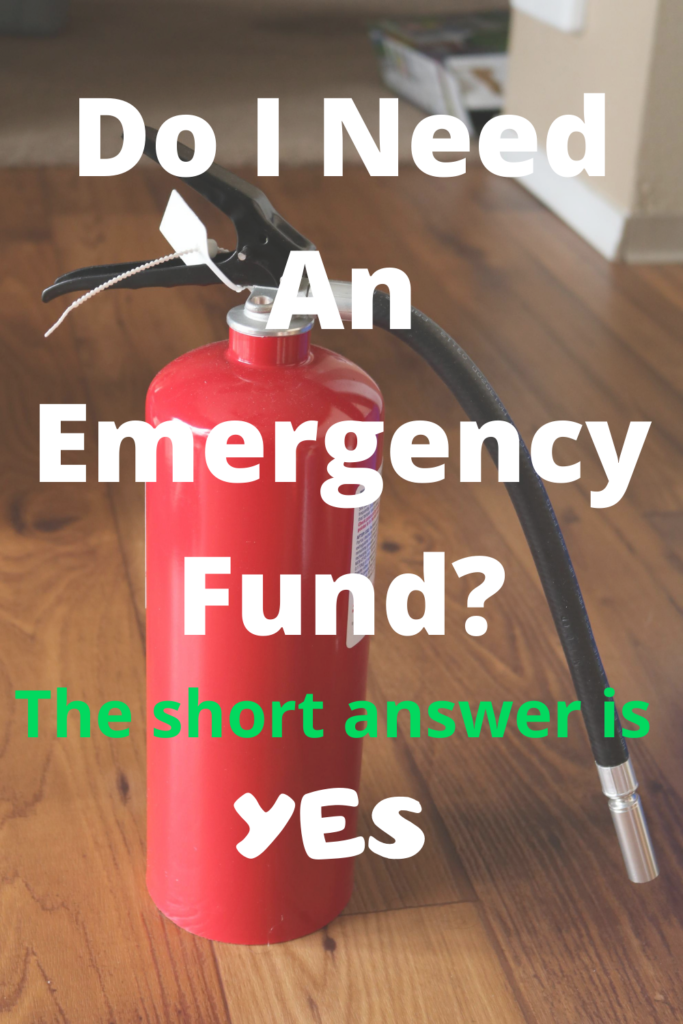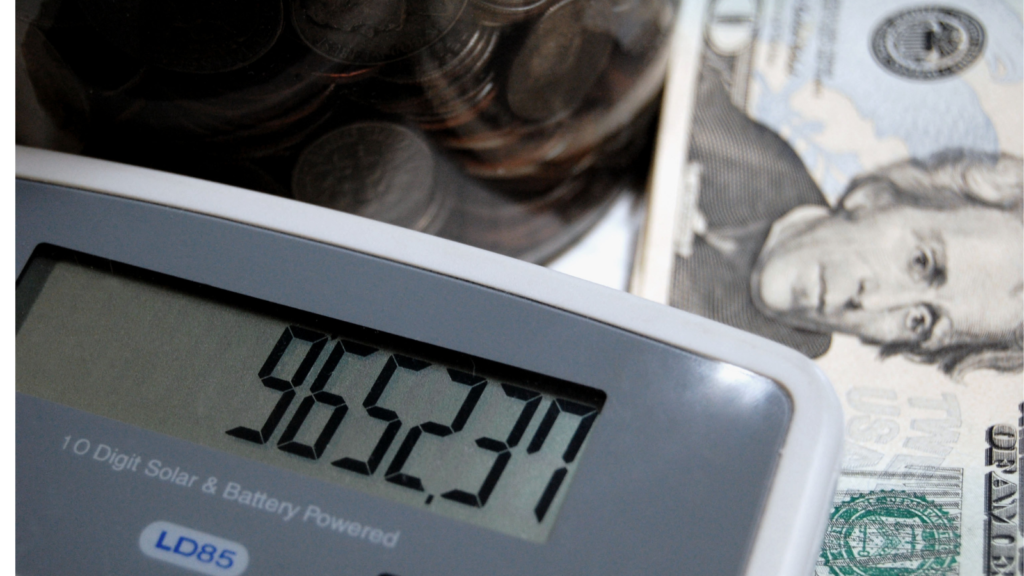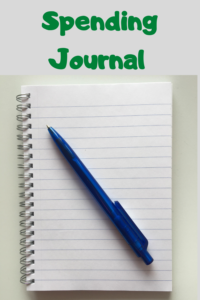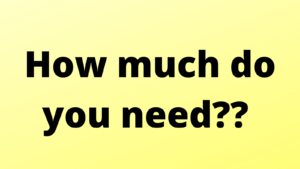Emergency Fund: Do I need one?
What’s going to happen tomorrow? You don’t know. Not for sure anyway. In fact, you can’t really even know what will happen later today. You can be sure, however, that something—an unexpected something—will occur eventually. It could be sooner than later. If it’s something good, we’ll have no trouble dealing with it. An emergency is different. If you don’t have a plan to deal with emergencies, a bad situation can be made worse. The opposite is also true: You can take a situation that could be disastrous and make it a mere inconvenience. The difference is having an emergency fund. It’s all about being ready. If your question is “emergency fund do I need one”? The answer is yes, you do.
The concept of an emergency fund is simple. Its money set aside for dealing with problems. Make the decision to have one. Save for the times unexpected, urgent things happen. Use your budget and (maybe) take on some extra work to find the money you’ll need.
An emergency fund is a financial lifeline. It’s dedicated money that can help sustain your lifestyle in the event of the proverbial rainy day.
Emergency Fund: Do I need one
Don’t go broke because of an emergency: It’s logical to assume that something, will go wrong: a flat tire, a leaky roof, uncovered medical expenses, any number of things. And things that go awry can have serious and long-lasting effects. That could be financially devastating. You want to be ready for emergencies before they happen. The only way to be prepared is to have funds ready to deal with the financial side of an emergency as it occurs. To have those funds, you need to become a saver and start making regular deposits into an emergency account. (NOW is the time to do it.) To be an effective saver you need to know your income and your expenses.
Know your finances
Most people can’t tell you what they had for breakfast yesterday. So, it’s no surprise that they can’t tell you where all their money goes. Sure, they can tell you how much their monthly rent/mortgage is or what the car payment is, but that’s not fully knowing your finances. Knowing your finances is more than knowing your major, regular expenses. It’s knowing how every dollar is spent—and why. Two tools that will help you determine where your money goes are a budget and a spending journal.
Budget
A budget maps out by category the intended purpose for every dollar, how much and where you want your money spent. (An article I’ve written, “How to Make a Budget”, explains the process.)
Some of the categories in your budget will be broad, e.g., groceries. Groceries can include a variety of goods: meat, dairy, produce, canned goods, even paper towels, laundry detergent, OTC meds, and more. The funds in this category may be spent anywhere theses goods are sold. Other categories, such as dental work, will be specific. That money is designated to be paid solely for services rendered by dental professionals.
Your emergency fund is sort of between the two. The money in it needs to be dedicated to dealing only with true emergencies, but what designates a “true emergency” may not be known ahead of your need for the funds.
Here’s a caveat to using your emergency funds. Don’t combine the money this category of your budget with that in any other… For example, you might include the cost of oil changes in your auto repair fund, and that’s okay—both pertain to car care. But. Don’t do something similar with money designated for emergencies. Don’t do something like lump it together with funds you might use—optionally—for a vacation or buying gifts. There’s a good reason for this: By nature, the timing of an emergency is generally unknown. Those other things usually happen on a schedule. The money in your emergency fund always needs to be fully available for application against its purpose—an emergency.
Spending journal
A spending journal is the other tool you need to track and manage your money. It’s a running record you fill out every time you spend money. The object is to log the amount, the when, the where, and the why of every penny you spend. By comparing the figures in your spending journal to your budgeted allotments, you’ll see how well you’re keeping to your plan.
One perk of keeping a spending journal is that you’ll learn where you’re wasting money and can find a better use for those funds. This makes your spending journal the first place to look for money to deposit into your emergency account.
Cache money for your emergency fund
As I said earlier, your emergency fund needs to be a distinct category of your budget. This requires you to determine how much and how often you’ll deposit money specifically designated for this purpose. I recommend contributing every payday.
Right now, I want to emphasize making regular deposits. Since building an emergency fund is a budgeting exercise, your deposits may be small in the beginning. I’ll give you some ideas on how to increase your savings shortly. Just remember, with regular deposits, even small amounts of money can produce a significant accumulation. But first, let’s consider how much it takes to have an adequate emergency fund.
How much do you need
In the past experts have said your emergency fund should hold enough money to cover 3 to 6 months of living expenses. That opinion changed as the Covid-19 crisis has unfolded. After a year of living with the cutbacks, shutdowns, and unemployment many say that we need enough money set aside to live on for at least 12 months and more would be better.
Saving enough to live on for a year is a substantial goal. As with any major project, we may have to start with small goals and build on them. I know someone whose first goal was to save an amount equal to their yearly maximum out of pocket for health insurance. Years ago, when I started my emergency fund, my goal was to save the amount of money I’d needed for my last emergency. Since then, life experiences have made it expedient to have a larger goal. Increased income has helped make that possible because the truth is every dollar you have set aside is one you don’t have to find at the time it’s needed. You can never be too prepared.
As to how much is enough, that’s highly personal. Everyone’s needs are different. Your emergency savings need to reflect your lifestyle. (BTW: Put some thought into what could be pared from your lifestyle should a financial emergency occur. Taking that into consideration now can reduce stress at a time when you need to be making other decisions.)
Do you have a plan to save money for emergencies or is something holding you back?
Deal with the problems
We can all come up with reasons we’re not saving money, but are there workarounds? Let’s look at several of the more common claims and counters to them:
- There are variations of “I don’t earn enough.”
If you don’t make enough money to put some in savings, try working more hours, or you can pick up a part-time job or side gig. Put the generated money into your emergency fund. When the time comes that you need it, you’ll be glad you don’t have to worry about where the money is going to come from.
- I spend too much
Review your budget and spending journal. Are you mindlessly spending money on nonessential things? Your financial security is worth more than “stuff.” Instead of spending that money, start saving it.
- Debt/Credit Payments
This can be challenging. Debt must be repaid before your money is really your own. That can make it hard to prioritize saving. Still, you need to put some money aside for emergencies. (As I said earlier, in times of emergency every dollar you have on hand is one you don’t have to hunt for.) Pay your debt down as quickly as you can. Take advantage of opportunities (Perhaps make some opportunities?) to earn extra money. It can be put toward repaying the debt—or saved. As you become debt free you can contribute more money to your emergency fund.
Recommended reading: Being debt free.
- I’m not in the habit of saving
This one’s simple: Just do it. Anytime we’re adopting a new habit we need to make it easy to do and remain conscious of making it a regular practice. Put it on you working “to do” list. That will help maintain your awareness. As for making it easy, your bank or credit union has a function for making automatic transfers (possibly called “bill pay” or “pay a person”). This function will allow you to schedule transfers from the account in which your pay is deposited to a savings account set up for emergencies. Set it, but don’t forget it; you’ll want to increase the amount you save from time to time. (BTW: You can have a debit card attached to the account that holds your emergency fund. This makes retrieving your money easy no matter where you are. Since emergencies rarely happen in convenient places, that’s a convenience to take advantage of.
Although the above, and other reasons, may present adverse circumstances to saving, you need financial security. You can’t allow them to remain excuses for not contributing to an emergency fund.
Devise a plan to start saving
Saving just $20 a week will give you over a $1,000 in a year’s time. Small amounts add up. If you can’t save $20 a week, start with a smaller amount, but put it away regularly. And, as you can afford more, increase the amount you save.
Take another look at the section just above that presents alternatives to obstacles and bad practices that hinder saving. The solutions should be helpful in developing a plan to save for…well, anything. And if you think about how destructive an emergency can be to your finances—therefore, your lifestyle—a fund that works as a buffer to those effects makes a good first thing to save for.
If you would like more help in planning a saving strategy, read A Strategy to Save Money. It’s an article I wrote that presents an easy way to start saving money.
Of course, you can build an emergency fund. It’s just a matter of what you’ll do to get started. You also need to determine what comprises an emergency.
What is an emergency?
An emergency is something that disrupts lifestyle and finances. Loss of income immediately comes to mind. Beyond that, the definition becomes personal. I think circumstances that come on suddenly, need to be dealt with immediately and require a significant amount of money to resolve to constitute an emergency.
Note: We might think of our various insurances as a mitigating factor, but can you lay your hands on insurance money quickly enough to deal with the issue now? And insurance policies always have some exclusions. For example, I have one vehicle. My car insurance will come into play if I’m in an accident, but it doesn’t help if I have a mechanical problem that puts my car out of commission. If it breaks down, I still need to get to work and back home. That make this scenario an emergency to me. Car repairs and rental cars tend to be expensive. I’ll use emergency funds to resolve this situation quickly. That said, what is an emergency for me may not be one for you. (Maybe, you live a block away from work, and lack of transportation wouldn’t be an immediate issue—not an emergency for you.)
Not all unplanned events are emergencies. Sometimes we can work through them without getting into our emergency funds. To avoid tapping my emergency fund to deal with unexpected or unwanted circumstances that can be resolved without drastic measures, I put some effort into defining what equates to an emergency. While we need to be careful about what we call an emergency, having an emergency fund can provide financial security and peace of mind when one occurs. It can protect your future as well as the present.
Emergency Fund: Do I need one? Yes, you do. Everyone does.








